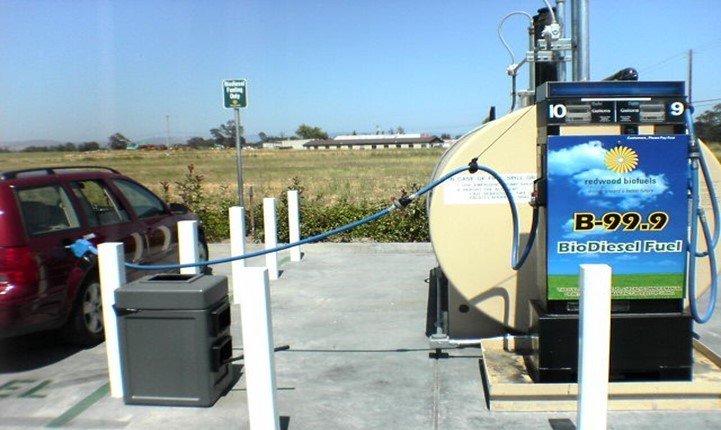Technology advancement in transportation has made oil a necessity in everyday life. Oil is a daily topic that is always in news bulletins and people’s conversations. Worry over depleted reserves, fall, and rise in prices has brought about alternative fuels, including biodiesel.
Biodiesel is one of the major biofuels made from biological ingredients like natural plant oils, animal fats, and recycled cooking oil. Despite this discovery, people are undecided on whether it is the go-to fuel or not. Is biodiesel a better alternative to fossil fuel? Is it more advantageous? These are just some of the questions you get to ask. The opinion surrounding the viability of biodiesel is split based on the merits and demerits. Only by studying and understanding the pros and cons you will be able to make an informed decision. Let’s take a look.
Pros of Biodiesel
1. Produced from renewable resources: Biodiesel is a renewable energy source, unlike other fuels like petroleum that is in constant depletion threats. It can be replenished constantly as it is made from plants, animal fats, and other organic materials.
2. Environmentally friendly: The fuel is biodegradable and comes from plants and animal resources. Any spills that may occur would be less harmful to the land and would be easier to clean as compared to diesel.
Greenhouse gas emissions from biodiesel engines are less harmful as compared to other conventional fuels. Research shows that gasses released from biodiesel with animal resources is almost 80% cleaner while plant resources are 56% cleaner.
3. Can be used in existing diesel engines: Biodiesel does not need a new engine as it can be used in existing oil and diesel engines right away with no or limited modification required.
4. Safe: The fuel is non-toxic and produces less particulate matter when burnt hence reduces risks of respiratory complications. It is also less likely to accidentally combust when exposed to a higher temperature as compared to other fuels due to its higher flashpoint. This makes handling, transportation, and storage quick and easy.
5. Inexpensive: Biodiesel is very cheap to afford as the production process is also affordable and made from readily available local resources and waste.
6. Economic benefits: Biodiesel has a range of benefits in the economy. Being that production is local, it would create more employment opportunities. Increased demand for biofuel would lead to an increased demand for resources hence making more people engage in farming of suitable biodiesel crops and animals.
7. Flexibility: Biodiesel blends with other energy resources and oil easily. It also has a range of applications. For example, it is used in railway, aircraft, ship, diesel generator, and it is an alternative fuel for home heating.
8. Increased Lubricity: Biodiesel has good lubricity that improves engine operations, making it run smoothly and effectively. The fuel acts as a solvent that loosens deposits in the engine hence preventing clogging. It leads to an increase in the working life cycle of engines.
9. Reduced Foreign Oil Dependence: The world supply of oil is depleting while demand is on the rise. With the production process of biodiesel being cheap and local, many countries would reduce their dependence on fossil fuels.
Most countries should advocate more investment in the growth and production of soybean. It would help increase the production and supply of domestic biodiesel.
Cons of Biodiesel
1. Engine damage: Even though most engines can run using biodiesel, it is not an ideal choice as most engines were manufactured to be used by petroleum diesel and not biodiesel. It may inevitably cause engine problems in the long run.
2. Low Energy: Research shows that biodiesel holds less power, at ten percent as compared to other fuels. Using B20 and B100 blends have reduced fuel efficiency by one to two percent.
3. Storage issues: Animal fat tends to congeal at low temperatures. Biodiesel turns into a gel-like substance during low or cold temperatures depending on the products used in its production. This condition makes storage of the fuel hard as it can cause corrosion making it hard to pump.
4. Not widely accessible: Currently, the demand and supply of biodiesel are low hence making it expensive. Few filling stations sell the fuel. That makes it an inconvenience for people as at times you will need to directly get in touch with the supplier who can deliver it to you.
5. Food Production Problems: Biodiesel production can affect equitable and fair food supply. Because plants are used as natural resources in biodiesel manufacturing, and there is a high demand for fuel, farmers would concentrate more on growing biodiesel resources. It may lead to an increase in the prices of these products hence creating a food crisis.
6. Efficiency: Biodiesel lacks efficiency in that the crushing and manufacturing process is not. There are a few plants to meet the demand. A lot of natural resources are required to produce a small amount of biodiesel that makes it less economical. The fuel produced holds a lower energetic power as compared to petroleum. All this contributes to its inefficiencies.
7. Costs: The economic and ecological alternative fuel source is vital. However, it becomes an issue when only a few can afford it. At present, biodiesel fuel is more expensive than petroleum diesel making it hard for the average person to afford.
8. Regional limitations: Some climates are not conducive for oil-producing crops and biodiesel consumption. For example, a country in the North Pole would find it hard to use biodiesel due to the region’s low temperatures. It would need to incur more costs to cover for heating expenses of the fuel to prevent it from solidifying.
9. Clogging in Engines: As a solvent, biodiesel cleans dirt from engines. This dirt gets collected in the fuel filters, clogging them. It happens because of the fuel blends (biodiesel and standard petroleum diesel. It is advisable to change the fuel filters when you switch to highly concentrated biodiesel blends.
The fuel is also disadvantageous in that it tends to harm rubber horses in some engines as it breaks down the rubber.



